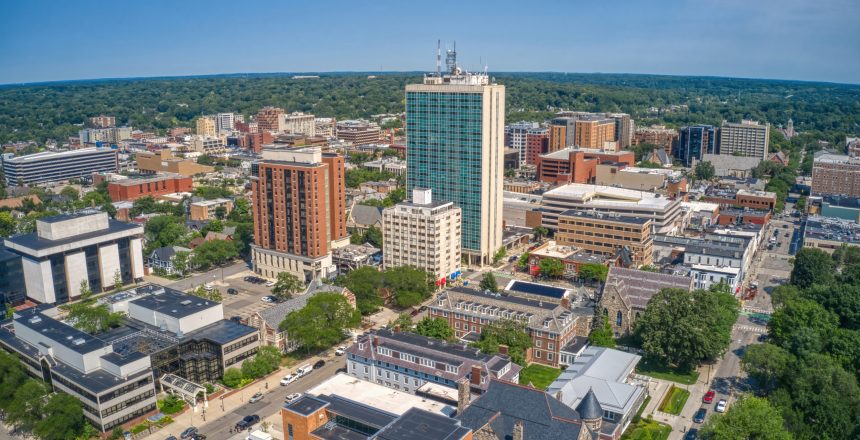Dual diagnosis conditions affect up to half of those who seek help to achieve lasting sobriety. One of the most significant challenges many people with a dual diagnosis face is understanding the roots of their symptoms come from multiple sources, not just addiction or a mental health struggle. Despite significant research, a limited body of research supports whether one diagnosis causes the other; however, a vast collection of research proves that mental health and addiction struggles often lead to shared symptoms across both conditions. Read on to learn is there dual diagnosis treatment near Ann Arbor, MI, and how it can help you today.
What is Dual Diagnosis?
When someone has a dual diagnosis condition, they simultaneously experience symptoms of a substance use disorder and a mental health condition. As mentioned above, most dual diagnosis conditions share many overlapping symptoms, so it can be challenging for patients and their treatment providers to separate symptoms into two conditions that allow for individual treatment plans. For this reason, the most successful dual diagnosis treatment programs work with you to understand all of your symptoms and develop the most effective treatment plan to help you manage your dual diagnosis.
What are Common Dual Diagnosis Disorders?
Because a dual diagnosis occurs when someone struggles with a substance use disorder and a mental health condition, there is a wide range of possible dual diagnosis disorders. Although multiple possibilities exist, several conditions are statistically more common than others.
- Attention-deficit hyperactivity disorder diagnoses increase one’s risk of experiencing a substance use disorder. Data from several studies suggest as many as 50% of adults diagnosed with ADHD have a dual diagnosis.
- Up to 17% of patients who seek help to address clinical depression also struggle with a substance use disorder.
- Approximately 25% of patients with a personality disorder meet the diagnostic criteria for at least one addiction.
- 30% of people, regardless of age, diagnosed with a mood disorder also struggle with addiction.
- Data from the National Center for Addiction and Substance Use indicates eating disorders, and substance use disorders co-occur in nearly 50% of cases.
- Research data indicates up to 50% of those who seek help to address post-traumatic stress disorder also have a dual diagnosis. However, this statistic might be heavily underreported due to barriers to treatment access for some who struggle with PTSD.
It is also important to mention that dual diagnosis conditions are sometimes referred to as co-occurring disorders. While the technical meaning behind the terms differs slightly, they are often used interchangeably in addiction and mental health treatment settings in reference to someone experiencing both conditions at the same time.
What are the Benefits of Dual Diagnosis?
Understanding you have a dual diagnosis ensures you have access to complete and comprehensive treatment that addresses all of your therapeutic needs. Because the root symptoms of a dual diagnosis are highly intertwined, it is crucial to choose a treatment program where the treatment professionals understand the unique nature of dual diagnosis treatment. It is essential to address both conditions simultaneously to ensure to best possible treatment outcomes.
The best dual diagnosis treatment programs design a treatment program specifically around your treatment needs. They focus on your physical, emotional, and spiritual health rather than your diagnoses. Therapy models at a dual diagnosis program are designed to help you explore the mental health challenges that may lie at the root of addictive behaviors and, conversely, the addictive behaviors that may lead to new or worsening mental health symptoms.
Perhaps the most important benefit of a dual diagnosis is understanding your symptoms arise out of more than one root cause. Historically, treatment programs addressed only addiction or mental health and did not engage in simultaneous treatment. Unfortunately, this led to ineffective treatment outcomes and increased relapse rates as many people who had a dual diagnosis did not receive treatment that addressed all aspects of their treatment needs. Knowing you have a dual diagnosis can ensure you choose a Michigan treatment program like Liberty House, where our professional providers understand dual diagnosis treatment needs.
Is There Dual Diagnosis Treatment Near Ann Arbor, MI
At Liberty House Recovery, our skilled, compassionate treatment staff will work with you to develop a comprehensive, evidence-based treatment plan that helps you understand and overcome dual diagnosis symptoms. Although the journey to recovery is not always a straight path, we are here to help you through each step. To learn more about our Ann Arbor dual diagnosis program, contact a member of our admissions team today.


